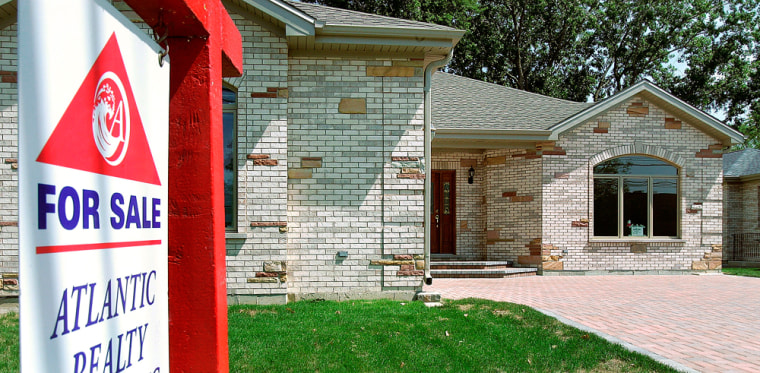Sales of new homes plunged in August by the largest amount in nine months as the nation’s housing industry continued to flash mixed signals about whether the boom is starting to fade.
The Commerce Department reported that new home sales declined by 9.9 percent last month to a seasonally adjusted annual rate 1.24 million units. Even with the slowdown in sales, the sales price rose by 2.5 percent from July’s level to $220,300.
The bigger-than-expected drop in new home sales could be an indication that the nation’s red-hot housing market is beginning to slow, but reports so far are mixed. On Monday, the National Association of Realtors said that sales of previously owned homes rose by 2 percent in August to 7.29 million units, the second-highest level on record.
In other economic news, the Conference Board in New York reported that consumer confidence plunged in September to a reading of 86.6, down from the August level of 105.5.
It marked the lowest level for consumer confidence in nearly two years, since October 2003. Various consumer confidence measures have shown sharp drops recently, reflecting the surge in energy prices including gasoline that topped $3 per gallon right after Hurricane Katrina shut down Gulf Coast refineries.
The 9.9 percent decline in new home sales was more than double what analysts had been expecting. The government also revised the July sales pace lower to an annual rate of 1.37 million units, still a 5.3 percent increase from June.
The decline in sales in August was the biggest drop since a 10 percent fall in November 2004.
Many economists believe that rising mortgage rates are finally starting to have an impact on the booming housing market. They are still forecasting that sales for all of this year will set all-time highs, the fifth straight year that sales of both new and existing homes have set records.
But analysts are forecasting a slight decline in sales for 2006 with prices moderating and possibly even declining in some of the hottest markets.
David Seiders, chief economist for the National Association of Home Builders, said that he looked for new home sales to slow further in the final three months of this year and to decline by about 5 percent in 2006 — even though he is forecasting that rebuilding from hurricane damage will mean another 25,000 construction starts next year.
He said his group’s monthly builder survey was picking up buyer resistance to high home prices and 37 percent of the builders surveyed said they were offering more free options to entice buyers.
Federal Reserve Chairman Alan Greenspan has been raising concerns about what a cooling housing market might do to the country’s banks and overall economy.
In a speech Monday to a convention of the American Bankers Association, Greenspan warned that the growing use of more exotic mortgage products such as interest-only loans could expose borrowers and the banks that loaned to them to “significant losses.”
Greenspan’s concern is that borrowers who made only small downpayments to buy their homes could be faced with a mortgage that is higher than the value of the home if home prices start declining, putting them at risk if they had to sell the home.
Greenspan is also concerned that the use of adjustable rate mortgages by homeowners who stretched to buy could expose them to payment shocks if mortgage rates keep rising. If those borrowers are unable to meet their mortgage payments, that will expose the banks that are carrying the loans to default risks.
But Greenspan also said in Monday’s speech that “the vast majority of homeowners have a sizable equity cushion with which to absorb a potential decline in home prices.”
The report on new home sales showed that the weakness last month was widespread around the country, led by a sharp 22 percent drop in the Northeast, the biggest setback in that area since last December.
Sales fell by 17.9 percent in the West, the biggest decline since last November, while sales were down 10.6 percent in the Midwest, the largest drop in that region since January.
Sales in the South, where Hurricane Katrina hit at the end of August, were down a smaller 2.2 percent.
